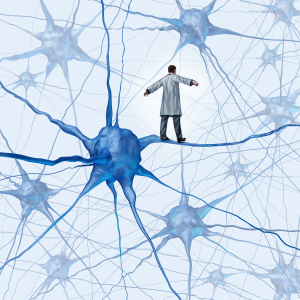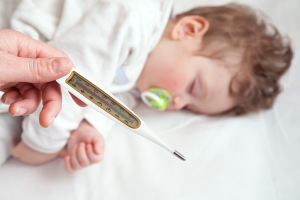By Dr Flannery 
The digestive tract is home to more than 100 trillion microorganisms. That’s ten times the number of cells in the human body! Although humans can survive without these tiny guests, they perform a host of useful functions, such as fermenting unused food, preventing growth of harmful bacteria, producing vitamins, and training the immune system. But did you know the bacteria in your gut can affect your brain, too? In fact, recent research on the gut has found some interesting links between the gut microbiome – the complex and unique microbiological community within the gut –- and autistic behavior in children.
As parents well know, children with autism have a high rate of problems with gastrointestinal (GI) disorders. The resulting discomfort can worsen behaviors and interfere with their ability to participate in, and benefit from, activities of daily life, education, and therapeutic activities.
On a related note, it has been known for some time that children with autism tend to have abnormal and less diverse communities of gut bacteria than children without autism. Recent research on children with autism has revealed these interesting facts:
Their intestinal cells show abnormalities in how they break down and transport carbohydrates, which can affect the amount and type of nutrients these cells provide to intestinal bacteria. This in turn may alter the makeup of the intestine’s normal community of digestive bacteria — with ill result.
Their intestines are home to abnormal amounts of certain digestive bacteria that contribute to digestive problems, intestinal inflammation, and more severe autism symptoms.
There are lower levels of three important gut bacteria; Prevotella, Coprococcus, and Veillonellaceae.
Theory has it that the community of bacteria in the gut affects the immune system, which then sends messages to the brain. This may explain why parents of children with autism report that special diets and probiotics (nutritional supplements containing “good” bacteria) improve their children’s digestion as well as their behavior.
The Gut-to-Brain Connection
The most recent research on the connection between the gut and autism explores how the gut microbiome affects the autistic brain. Researchers at Arizona State University found that concentrations of metabolites (byproducts) from seven specific bacteria are more prevalent in autistic children’s fecal samples. According to study author Dae-Wook Kang, “Most of the seven metabolites could play a role in the brain … We suspect that gut microbes may … affect gut-to-brain communication and/or alter brain function.”
Of the seven metabolites that were noticed, three warrant special note for their apparent relation to brain function, thereby behavior:
Homovanillate was present at lower levels in children with autism; it is normally produced when dopamine (an important brain neurotransmitter involved in many aspects of mood and behavior) is broken down.
N,N-dimethylglycine was found at lower levels; it has been used before to decrease autism symptoms.
The ratio of glutamine to glutamate was higher: these are metabolized into GABA, a vital inhibitory neurotransmitter associated with relaxation. An imbalance between glutamate and GABA transmission has been associated with autistic-spectrum type behaviors such as hyper-excitation.
These connections offer insight into possible link between the gut biome and the behaviors seen in autistic children. Researchers say they would like to conduct a clinical study using fecal transplants from healthy donors to see if normalizing an individual’s community of gut bacteria would reduce autism symptoms.
Although the study was small, it adds to the growing body of research that tells us the gut is closely tied to the brain.
Continue to website here





